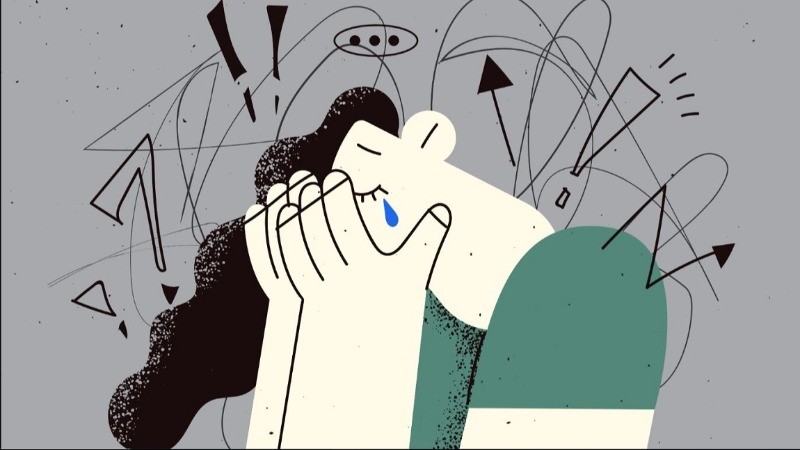
Anxietymanifests through symptoms like excessive worry, restlessness, fatigue, and difficulty concentrating. Identifying these signs early and consulting experienced psychiatrists in Delhi can help manage anxiety with effective treatment options in psychiatry for better mental health.
Anxiety is a natural reaction to stress or a perceived threat. But when anxiety reaches a level, where it hinders normal functioning in everyday life, then it graduates to an anxiety disorder and has dire physiological and psychological implications. It is important to identify the symptoms of anxiety in order to control the disorder and consult a specialist. In this article we will look at the key indicators and what anxiety looks like, the various types of anxiety, and when one should consult the psychiatrists in Delhi or undergo psychiatry .
Anxiety is a feeling of fear, nervousness or worry that occurs in response to stress or in situations that are not well understood. Although everyone, at one point in time or the other, gets anxious, chronic or severe anxiety can result in disruptive behaviours and lead to the disruption of normal functioning and a state of full blown, constant apprehension. Specifically, anxiety disorders are amongst the most common mental health disorders cutting across all ages and the world over.
There are different types of anxiety, but however it appears, anxiety is both physical and psychological. Here are some common signs of anxiety:
A common characteristic of anxiety is the constant and excessive concern with ordinary events. Those with anxiety disorders may overestimate threats such as job, health, relationships, or even small difficulties.
Another relatively superficial manifestation of the disorder is that the patient cannot seem to sit still or relax, fidgeting constantly. Anxiety is characterised by feelings of restlessness or being easily agitated, and this is how most people with anxiety feel. This restlessness can make it hard to focus, sit still or even sleep at night.
Anxiety often presents with physical symptoms, which can include:
While anxiety does help keep a person alert, it can also be exhausting. In the context of anxiety, most people are likely to face consistent fatigue, and this will adversely affect their wellbeing, and productivity.
One of the most frequent complaints that people with anxiety have is that they cannot concentrate. These are signs of anxiety or the underlying thought and the tendency to always look for something going wrong which shall hinder clear and constructive thinking where simple tasks of the day may be thought of as difficult.
Most people with anxiety have sleep problems, including the inability to fall asleep, to stay asleep, or wake up feeling refreshed. Worrying leads to the development of racing thoughts during the night, which disrupts the body’s normal processes of rest.
In some cases, when specific conditions are associated with anxiety, people begin to avoid them. It can be as simple as not going out or meeting people (because of social phobia) to not going to certain areas or performing certain actions that cause stress. In time, avoidance behaviour can drastically diminish the number of situations an individual encounters in his day to day interactions.
Irritability is a common effect of anxiety, or in other words, people become more sensitive to stimuli. This heightened sensitivity is associated with the stress response and usually leads to conflict in relationships, between partners, friends, or employees.
It is important to note that some people with anxiety disorders get panic attacks. Panic attacks are sudden and occur frequently where one may experience a short period of fear or terror, palpitations, chest pain, sweating or choking sensations or feelings of death. Panic attacks are very distressing and most people with this condition end up consulting psychiatrists in Delhi or any other city.
There are different types of anxiety, and each of them is different from the others. Knowledge of the various anxiety disorders will assist people in recognizing their symptoms and where to go for treatment.
Generalised anxiety disorder is defined as the persistent and uncontrolled worry about different aspects of life such as job, relationships and health. The symptoms people with GAD have include - general restlessness, muscle tension, and sleep disturbances.
Panic disorder is characterised by regular panic attacks that occur with no apparent reason. These attacks are episodes of fear or anxiety which in most cases are characterised by chest pains, palpitations and breathlessness.
Specifically, the social anxiety disorder is characterised by the end of extreme fear of social situations which tend to cause embarrassment to the affected individual. This may manifest in formal communication situations such as public speaking, attending parties and networking events as well as meeting new people.
Obsessive compulsive disorder is a type of anxiety disorder characterised by recurrent involuntary ideas (obsession) and irrational, irresistible acts (compulsion). These rituals are done in a bid to minimise anxiety.
PTSD develops when a person is exposed to or witnesses a traumatic event. Acute symptoms include actual reliving of the event reflected through flashbacks and nightmares or other anxiety related to the event.
If you or someone you know is showing any of the above signs of anxiety, then it is high time to consult a psychologist. There are many licensed professionals including psychiatrists in Delhi who have specialised in anxiety disorders. With the help of therapy, medication or both, psychiatry can help people to learn how to cope with anxiety.
To sum up, Anxiety is a multifaceted disorder that is experienced by a large part of the global population. The understanding of symptoms of anxiety is the key to be taken towards the overall treatment process of the condition and maintenance of mental health. If you are one of those who are suffering from anxiety, please do not wait to seek help from psychiatrists in Delhi in order to get diagnosed and treated properly. Anxiety can be well controlled and thus people can lead healthier and happier lives if they are well-supported.
Read More Health Articles: